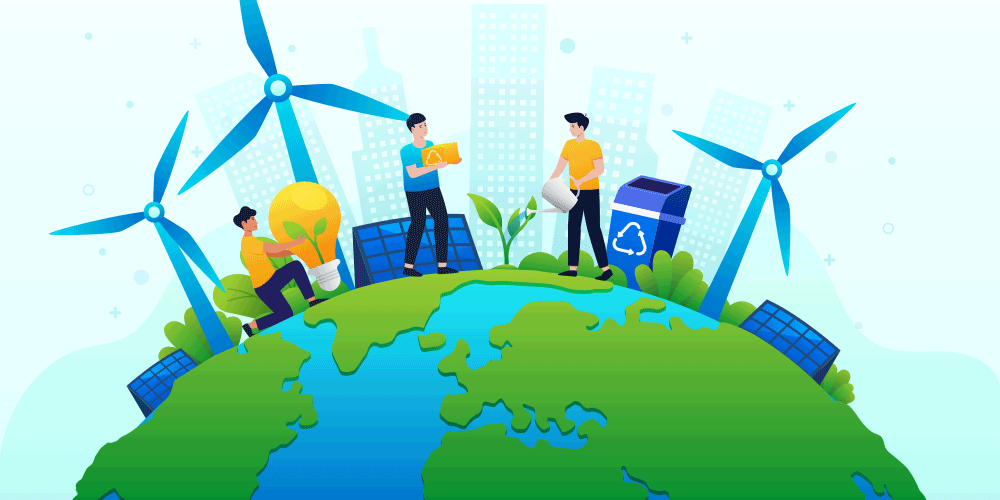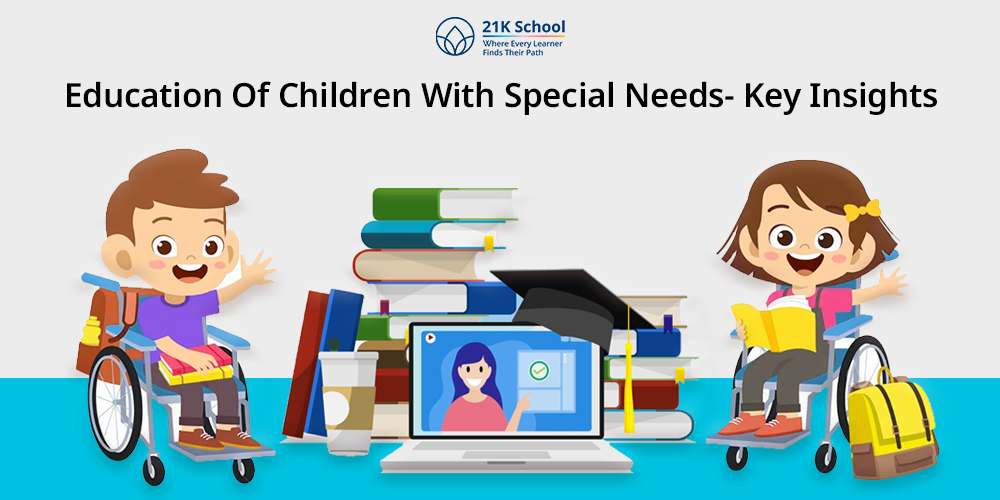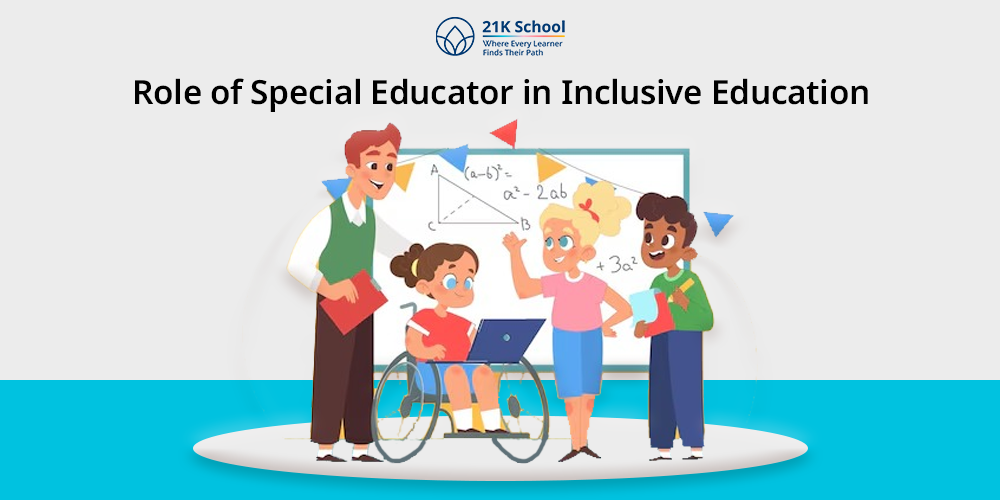
Nowadays our environment is getting worse day by day, but who will take responsibility?
How can we manage all these issues, such as climate change, deforestation, and many more?
Well, we can try by creating awareness for our young people and making them realize the importance of events.
As we know, environmental awareness is so important for our planet. With the help of young people, we can take the best steps forward for our future.
So, in this blog we will cover the effective ways to get young minds into environmental causes.
Table of Contents
- Why Environmental Awareness is a Necessity?
- Ways to Promote Environmental Awareness
- 1. Incorporate Environmental Education in School Curricula
- 2. Organise Planting Trees and Green Initiatives
- 3. Encourage Participation in Community Clean-Up Projects
- 4. Promote Sustainable Fashion and Eco-Friendly Products
- 5. Organize Youth-Led Environmental Activism and Movements
- 6. Foster a Love for Nature Through Outdoor Activities
- 7. Introduce Interactive Apps and Games Focused on Sustainability
- 8. Collaborate with Influencers to Spread Environmental Messages
- 9. Host Workshops and Webinars on Climate Change and Conservation
- 10. Support Eco-Conscious Businesses and Initiatives
- Looking Ahead
Why Environmental Awareness is a Necessity?
It is important nowadays to spread environmental awareness in schools and other places also. It helps us in highlighting the current issues that threaten our health and planet.
Young people are our next generation of leaders and decision-makers, also awareness motivates them a lot. There is an interconnectedness in our natural world and human activity.
Well, environmental issues are highlighted, like pollution, deforestation, climate change, and many others that young people can think to work on the same.
Awareness can develop the knowledge and the important skills needed to mitigate the environmental impact.
There are many sustainable practices that help us in preserving our natural resources. They also help us in protecting biodiversity and work on reducing carbon footprint.
Moreover, young people can make better decisions for our surroundings. Adding friendly habits once they are aware of it. These healthy habits can make a long-term positive impact on the planets.
Ways to Promote Environmental Awareness
Here are some effective ways to raise environmental awareness among young people and motivate them to take part in environmental protection.
1. Incorporate Environmental Education in School Curricula
One of the easiest and most effective ways to promote environmental awareness is by adding it into education. Yes, schools can initiate and add this awareness in their curricula.
Learning in school will help the students to get the best understanding about these issues. It also helps them to grasp the concepts and will shape their decision in future.
Learning these things in school, the younger generation understands all this at an early age. There are many subjects like biology and geography.
Also, schools can add this topic in their science projects and even some sections in history can be part of this.
However, teachers can also take initiative in this and make students engage in activities related to it. The activities related to it can be interactive lessons, guest lectures, some quizzes and many more.
2. Organise Planting Trees and Green Initiatives
Planning events like green initiatives and reorganising tree planting helps the young generation to understand the importance.
These events help young people to understand the importance of preserving natural resources.
Once they physically evolve in nature they can have a better understanding. Even planting the tree helps them to get familiar with this awareness.
Also they get an idea of the importance of preserving natural resources.
Moreover, these events help them to have a good opportunity to get the concept of environmental sustainability to real world action.
It also boosts their sense of accomplishment and their role towards a better future environment. Well nowadays online schools are also providing sustainability to the environment.
3. Encourage Participation in Community Clean-Up Projects
Clean-up events are functional and enjoyable methods of participation in conservation. Youth can enroll themselves in this and get closer with the environment.
The general public deeming local parks or beaches, streets, and neighborhoods as their home makes it easy for students.
They can grasp the actual effects of wastes and pollution around them. They also learn the requirements for disposing of wastes and the need to recycle materials and objects.
As such, young people who take part in these events are more likely to adopt cleaner habits in their behaviors. It includes less disposal of waste in the environment and the use of public transport.
However, it also promotes a shared difficulty in tackling difficulty. Similarly, even though it encourages curiosity in children, they take part in such activities.
4. Promote Sustainable Fashion and Eco-Friendly Products
Fashion is one of the powerful industries that gives the students the perception that fashion offers them the life they want to lead. They should be urged to adopt better lifestyles.
This makes purchases of environmentally friendly goods like those in the fashion industry. There is nothing wrong with using fashion items.
However, the need to embrace sustainability by wearing clothes from ethical fashion brands.
They can invite celebrities to host fashion shows or hold swap shops or events about second-hand or sustainable fashion.
Also, the involvement of accessories with labels of bamboo, organic cotton, or recycled fabric can educate customers. It helps to sensitize them to the needed change from the normal wasteful habits.
5. Organize Youth-Led Environmental Activism and Movements
A quite effective approach to implementing the young people’s involvement is to recognize their desire to create changes and support activism and movements.
They mobilize their peers and the rest of society when youth proceed to assume the mantle of policy champions for substantive environmental causes.
The young people organize protests, marches, or advocacy campaigns on important environmental issues. They wish to change, and at the same time they learn leadership and advocacy skills, among others.
It means that they can use social media to post their messages, call their fellow citizens, and discuss ways of making the future sustainable.
6. Foster a Love for Nature Through Outdoor Activities
Young people can build their deep connection with nature. It leads to a stronger attachment and commitment for its preservation.
Teachers and parents can plan the outdoor activities. It includes hiking, camping and also can take wildlife observations trips. All these activities make a friendly connection with nature.
Young people can have better understanding once they learn about local ecosystems and wildlife. Building a deep connection helps you people in understanding the importance of protecting nature.
7. Introduce Interactive Apps and Games Focused on Sustainability
Nowadays Technology plays an important role and young people are well familiar with this technology.
There are many interactive apps and games in the market which help them in getting environmental awareness.
Young people are so much into the games and you can ask them to play some environmental awareness games.
Also read about the blog which talks about technology changing education
It also allows young people to get an idea on the impact of their action on the different planets. Moreover, the several apps created to help individuals to work on decrease the carbon footprint.
It also helps in tracking the environmental habits and work on tips on sustainability for the environment.
8. Collaborate with Influencers to Spread Environmental Messages
Nowadays young people are so much into social media influencers and have a huge impact on opinions.
In spreading environmental awareness, influencers can boost the young people and promote these things. It helps in spreading the message from their favorite influencers and covers a mass audience.
Moreover, influencers can easily share tips on the environmental awareness living tips. It also helps in promoting brands, or participating in the environmental awareness campaigns.
Influencers have a huge audience and they can make things easy and normalize sustainability practices.
9. Host Workshops and Webinars on Climate Change and Conservation
While discussions during the workshops and webinars are focused on a particular environmental problem, young people may choose to explore a particular subject in detail and come up with creative solutions.
These events may include lectures from the environmental organizations, scientists, activists, and personalities. They can share lots of information important to making youth change makers now.
However, schools can also plan some science experiments for young scientists.
Young people have a chance to communicate with experts, to ask some questions. In this way you receive more complete information about the problems we face in terms of environmental protection.
These events can also help create and strengthen people’s community since young people with different backgrounds come together to find solutions.
10. Support Eco-Conscious Businesses and Initiatives
Promoting green enterprises is a very effective way to help youth make more environmentally friendly consumption decisions.
Schools, youth groups, and communities should work with businesses consistent with sustainable business practices, products and services, fair trade, or green power status.
Making it easy for young people to spend their money on the right products and services is an effective way of forcing the right message that the consumer has power.
Organizing occasional pop-up markets. They will force them to start thinking more critically before purchasing products that are harming the planet is one way of waking them up.
Looking Ahead
Raising the environment awareness to young people is all about changing the environment for the future.
It’s like empowering young people to take the crucial decision and make the best sustainable choice. Moreover, it also leads to charge for a healthier and more sustainable power.
Well, by fostering the sense of responsibility boosts active participation in environmental causes. We can try to change our young mind set for a better future and do our best to tackle challenges.
So, let’s make our young people familiar with environmental issues and take a step to make the future better.



